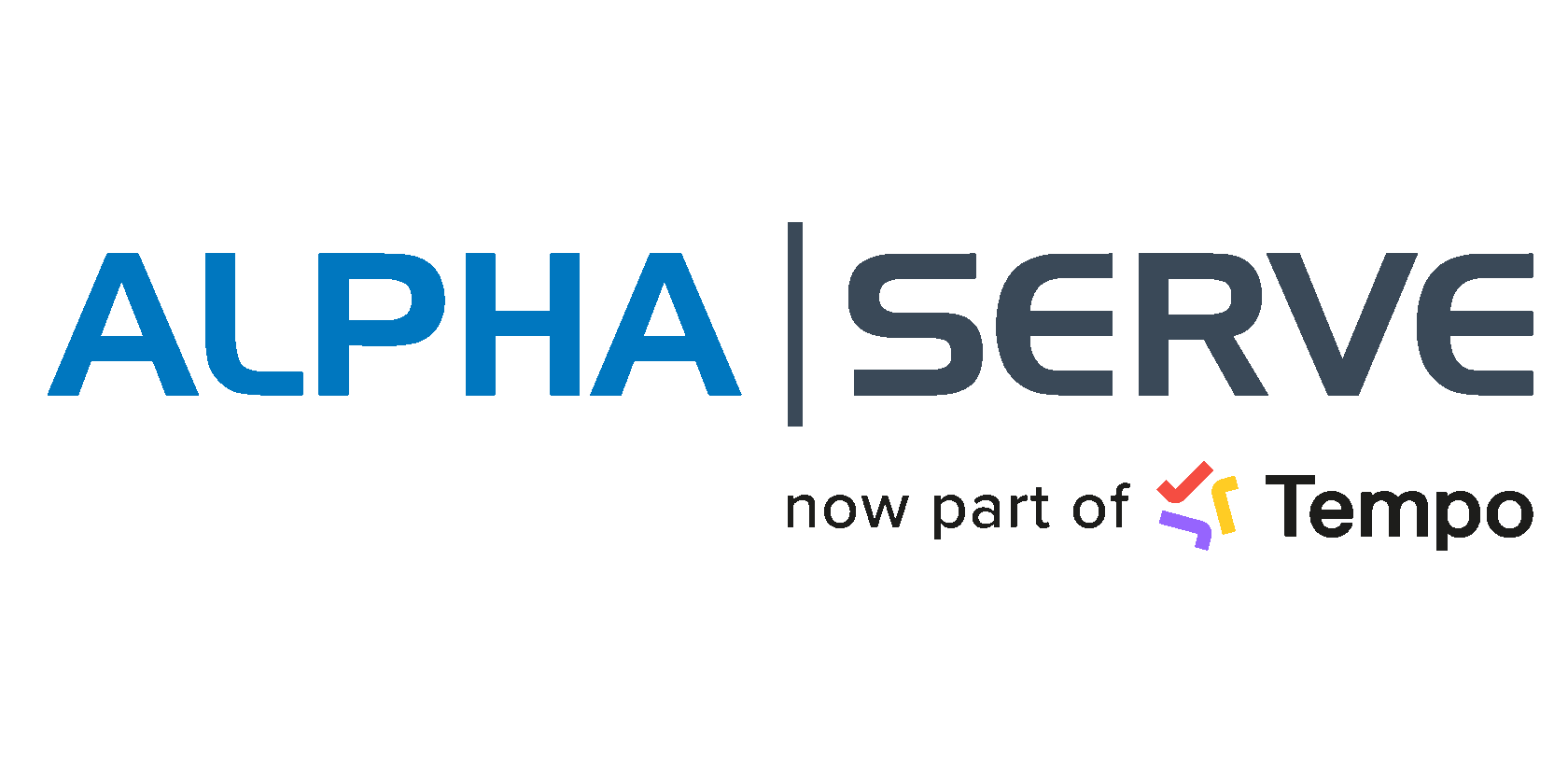Salesforce vs ServiceNow: Compare Best ITSM Tools 2023
Author: Khrystyna Shparyk
PhD, Business Development & Partnership Manager at Alpha Serve
Published: October 5, 2022
Last Updated: April 26, 2024
Last Updated: April 26, 2024
Salesforce and ServiceNow are two of the big players in the B2B software field. Both platforms have extremely loyal following bases, and their solutions are popular with large enterprises worldwide. Which one is better for your company? We went ahead and put both apps through their features to see how they can perfectly fit your business needs.
In this article, we will compare the best ITSM Tools 2023 that will give you a chance to figure out which one to use in perspective. Our comparison might be useful for both customers on the one side and vendors, consultants, integrators, and resellers of solutions on the other.
In this article, we will compare the best ITSM Tools 2023 that will give you a chance to figure out which one to use in perspective. Our comparison might be useful for both customers on the one side and vendors, consultants, integrators, and resellers of solutions on the other.

Here’s what we’ll cover in this blog post:
- Salesforce vs ServiceNow: Overview
- ServiceNow vs Salesforce: Key Features
- Salesforce vs ServiceNow: What Is the Difference Between Salesforce and ServiceNow
- Salesforce vs ServiceNow: ITSM Solution
- ServiceNow vs Salesforce: Plans and Pricing
- Salesforce vs ServiceNow: Integrations
- ServiceNow vs Salesforce: Top Alternatives
- Conclusion
Table of Contents:
It is a table of contents. Click on the needed subheading and switch between parts of the article.
Salesforce vs ServiceNow: Overview
What is Salesforce
What is Salesforce
Originally, Salesforce positioned itself as a customer relations management service (CRM) but now they are categorized as a Platform-as-a-Service. Now, Salesforce is an enormous infrastructure of software products that benefit sales, commerce, marketing, service, and IT teams that relate to their customers. Being a Platform-as-a-Service gives an opportunity to customers to buy a ready-to-use Salesforce CRM system.
Also, they can build their own framework components (Lightning components) and custom apps on top of the Salesforce Lightning platform (Force.com). Moreover, customers can become Salesforce partners and market these software products on their own app marketplace – AppExchange.
Also, they can build their own framework components (Lightning components) and custom apps on top of the Salesforce Lightning platform (Force.com). Moreover, customers can become Salesforce partners and market these software products on their own app marketplace – AppExchange.
What is ServiceNow
What is ServiceNow
ServiceNow is the most comprehensive solution available for service managers seeking to automate and streamline every aspect of their business, from customer relationship management to workforce planning.
The platform was originally designed for the automotive industry, where companies like Daimler, General Motors, and Ford have all adopted it. Since then, it’s been expanded to multiple industries, such as financial services, retail, education, healthcare, government, and many more.
Nowadays, ServiceNow is a cloud automation platform that gives companies a chance to progress more efficiently by making routine activities structured and systemized. One of the main features is that ServiceNow integrates with other tools that expand your opportunities. So what is ServiceNow used for? ServiceNow is a purpose-built ITSM product that focuses on quality over quantity. The platform provides an excellent end-user experience.
The platform was originally designed for the automotive industry, where companies like Daimler, General Motors, and Ford have all adopted it. Since then, it’s been expanded to multiple industries, such as financial services, retail, education, healthcare, government, and many more.
Nowadays, ServiceNow is a cloud automation platform that gives companies a chance to progress more efficiently by making routine activities structured and systemized. One of the main features is that ServiceNow integrates with other tools that expand your opportunities. So what is ServiceNow used for? ServiceNow is a purpose-built ITSM product that focuses on quality over quantity. The platform provides an excellent end-user experience.
ServiceNow vs Salesforce: Key Features

If you are looking for detailed planning and analysis tools, look no further, as these apps have you covered. Let’s take a quick glance at some of the feature sets these apps offer.
Key ServiceNow features
Key ServiceNow features
ServiceNow has a feature of extreme flexibility. The platform offers a variety of deployment options - from completely hosted to on-premise. If you go for the second option, then you might need a DevOps team assist you in designing and configuring the system.
Among the other features are: data confidentiality, ITSM enhances tracking, minimum response time, simple configuration, adaptivity to all types of environments, etc.
Talking about the top features of ServiceNow, we must take into consideration that ServiceNow is a story of mid-sized to large businesses. Main features include intelligent incident management, AI-based resolution recommendations, automated approval of standard IT changes, request management, service level management, and mobile features. ServiceNow is considered to be particularly good at problem management, ITSM asset management, and change management.
Compared to other solutions – ServiceNow is a relatively low-maintenance solution, but still, it takes time to set it up and run. Nevertheless, it integrates with other business-critical applications and provides a single system of record for all IT needs.
Among the other features are: data confidentiality, ITSM enhances tracking, minimum response time, simple configuration, adaptivity to all types of environments, etc.
Talking about the top features of ServiceNow, we must take into consideration that ServiceNow is a story of mid-sized to large businesses. Main features include intelligent incident management, AI-based resolution recommendations, automated approval of standard IT changes, request management, service level management, and mobile features. ServiceNow is considered to be particularly good at problem management, ITSM asset management, and change management.
Compared to other solutions – ServiceNow is a relatively low-maintenance solution, but still, it takes time to set it up and run. Nevertheless, it integrates with other business-critical applications and provides a single system of record for all IT needs.
Key Salesforce features
Key Salesforce features
If we talk about Salesforce – it’s more about small to large businesses. The main features are workflow automation, AI chatbots, a self-service center, and appointment assistant. In particular, Salesforce tools are considered to be really good at Customer Service & Support, marketing automation, CRM project management, social CRM, and others.
What’s interesting is that Salesforce has a few powerful features at the intersection of ITSM and CRM. For instance, in the management of Salesforce, they have a visually remote assistant that allows service representatives to improve troubleshooting participation. Moreover, the incident management feature uses artificial intelligence to identify patterns based on incoming cases, then provides high-level information which helps productively address underlying problems.
Talking about Salesforce features we cannot skip the Salesforce ticketing system that allows you to efficiently provide service to customers, partners, and internal employees by assigning a ticket (or case number) to every service inquiry. Also, Salesforce has added an element of ITIL to their offering services like request, incident, problem, and change.
What’s interesting is that Salesforce has a few powerful features at the intersection of ITSM and CRM. For instance, in the management of Salesforce, they have a visually remote assistant that allows service representatives to improve troubleshooting participation. Moreover, the incident management feature uses artificial intelligence to identify patterns based on incoming cases, then provides high-level information which helps productively address underlying problems.
Talking about Salesforce features we cannot skip the Salesforce ticketing system that allows you to efficiently provide service to customers, partners, and internal employees by assigning a ticket (or case number) to every service inquiry. Also, Salesforce has added an element of ITIL to their offering services like request, incident, problem, and change.
Salesforce vs ServiceNow: What Is the Difference Between Salesforce and ServiceNow

What is similar
What is similar
Both ServiceNow and Salesforce platforms work well for large businesses. The question is which one to choose in this case? Actually, it depends on preferences, the structure of your company, and goals. But bear in mind that Salesforce is better for small enterprises and start-ups because ServiceNow might be unreasonable in this case in terms of pricing.
Also similar is that both companies are ranked equally high according to the vast majority of rankings (for example TrustRadius) and both systems have been in the industry for quite some time.
Both systems can take a long time to implement and require a professional administrator to coordinate support needs and maximize the value of each platform. So similar is the fact that they might be too advanced for average users without a good degree of technical expertise.
Both Salesforce and ServiceNow offer robust reporting tools. Overall, Salesforce’s reporting tools are extremely powerful and flexible and allow you to create your own custom report. You can build your own dashboards and break down data in ways that are meaningful and helpful to you.
ServiceNow offers a similar reporting feature. The ServiceNow reporting platform enables users to create a variety of reports, including pie and bar charts, lines, histograms, and more for different data types representation. Additionally, it offers a drill-down option for more complex reporting. Real-time data reports with updated information also feature ServiceNow reporting. Users can also schedule automatically generated reports to any preferred date or time.
Both apps integrate with popular third-party services like MailChimp and Slack. So even if your company uses only these two apps, you’ll be able to effortlessly connect with several online services that you might find useful (e.g., email marketing, customer support, etc.).
Also similar is that both companies are ranked equally high according to the vast majority of rankings (for example TrustRadius) and both systems have been in the industry for quite some time.
Both systems can take a long time to implement and require a professional administrator to coordinate support needs and maximize the value of each platform. So similar is the fact that they might be too advanced for average users without a good degree of technical expertise.
Both Salesforce and ServiceNow offer robust reporting tools. Overall, Salesforce’s reporting tools are extremely powerful and flexible and allow you to create your own custom report. You can build your own dashboards and break down data in ways that are meaningful and helpful to you.
ServiceNow offers a similar reporting feature. The ServiceNow reporting platform enables users to create a variety of reports, including pie and bar charts, lines, histograms, and more for different data types representation. Additionally, it offers a drill-down option for more complex reporting. Real-time data reports with updated information also feature ServiceNow reporting. Users can also schedule automatically generated reports to any preferred date or time.
Both apps integrate with popular third-party services like MailChimp and Slack. So even if your company uses only these two apps, you’ll be able to effortlessly connect with several online services that you might find useful (e.g., email marketing, customer support, etc.).
What are the differences
What are the differences
The biggest dissimilarity is that ServiceNow was made for the IT operations side of the business when Salesforce was built as a customer relationship management (CRM) product aimed to serve sales and marketing departments.
Unlike Salesforce, ServiceNow is a codeless solution, which means it doesn’t require as much configuration time as Salesforce does.
While ServiceNow has all the right features to generate a single system of record and automate the service management process, Salesforce can be customized to meet many ITSM needs while also prioritizing the sales pipeline.
In terms of Customer Support which includes quality and speed of assistance - Salesforce offers three levels of customer service mainly - Salesforce Trailhead, Trailblazer, and Premier. Trailhead and Trailblazer communities provide the standard level of assistance and Premier is a more advanced level. ServiceNow offers their clients round-the-clock phone help all clients via the Contact Support page or the website’s live chat. So, the general approach to Customer Support is totally different.
On the innovation side, both platforms are using AI and process automation, but Sales teams might benefit more from customer data analysis using Salesforce Einstein’s CRM interface than from ServiceNow analytics. Salesforce AI collects much more useful information about consumer behavior, shopping trends, support requests, etc. than ServiceNow AI.
And finally on usability. When it comes to updating and upgrading ServiceNow is a bit of a difficult case that requires expert consultation and support. On the other hand, Salesforce is committed to making on-demand corporate apps available to the majority of people, including those who use assistive devices like voice recognition software and screen readers. Also, Salesforce has a wide range of CRM capabilities, an excellent range of integration possibilities, and a huge degree of customization while ServiceNow CRM is a web-based framework.
Unlike Salesforce, ServiceNow is a codeless solution, which means it doesn’t require as much configuration time as Salesforce does.
While ServiceNow has all the right features to generate a single system of record and automate the service management process, Salesforce can be customized to meet many ITSM needs while also prioritizing the sales pipeline.
In terms of Customer Support which includes quality and speed of assistance - Salesforce offers three levels of customer service mainly - Salesforce Trailhead, Trailblazer, and Premier. Trailhead and Trailblazer communities provide the standard level of assistance and Premier is a more advanced level. ServiceNow offers their clients round-the-clock phone help all clients via the Contact Support page or the website’s live chat. So, the general approach to Customer Support is totally different.
On the innovation side, both platforms are using AI and process automation, but Sales teams might benefit more from customer data analysis using Salesforce Einstein’s CRM interface than from ServiceNow analytics. Salesforce AI collects much more useful information about consumer behavior, shopping trends, support requests, etc. than ServiceNow AI.
And finally on usability. When it comes to updating and upgrading ServiceNow is a bit of a difficult case that requires expert consultation and support. On the other hand, Salesforce is committed to making on-demand corporate apps available to the majority of people, including those who use assistive devices like voice recognition software and screen readers. Also, Salesforce has a wide range of CRM capabilities, an excellent range of integration possibilities, and a huge degree of customization while ServiceNow CRM is a web-based framework.
Salesforce vs ServiceNow: ITSM Solution
Salesforce vs ServiceNow: ITSM Solution

What is ITSM and why do you need ITSM tool
What is ITSM and why do you need ITSM tool
IT Service Management applies oneself to customer needs and IT services for customers rather than on IT systems. ITSM force continual improvement which aligns an IT team’s goals with the vaster objectives of the business, and that their actions support the overall mission.
What is Salesforce Service Cloud
What is Salesforce Service Cloud
The key feature of Salesforce Service Cloud is the capacity to build customer loyalty. They include Lightning Service Console, Case Management, Service Cloud Voice, Knowledge Base, Telephony Integration, Omni-Channel Routing, and Service Analytics. Using a set of tools, businesses can understand customer pain issues and enhance their products accordingly. On the practical side, customers are satisfied with the way of how easy it is to use the system because it's complete and dynamic. Also, the way the data is tracked and integrated with other software products makes an additional advantage for sales opportunities and business administration.
What is ServiceNow ITSM
What is ServiceNow ITSM
During the last decades, we have gone from traditional phone support to more sophisticated IT Service Management Tools. Nowadays it is a widely used technology as far as many people are seeking productive, secure software solutions with policy dictation and performance logging. The solution for them is to try ServiceNow IT Service Management System.
The main idea behind ITSM is the delivery of IT as a service that goes beyond classical IT support because it's more inclusive. Moreover, it covers all information technologies within an organization. Taking on the more practical side, users are usually satisfied with the way ServiceNow ITSM integrates with other systems and applications and the fact the dashboards and reports give good insights. Also, the fact that in ServiceNow ITSM are no shortage of options and add-ons, can be great if the value is justifiable and the budget allows for it.
The main idea behind ITSM is the delivery of IT as a service that goes beyond classical IT support because it's more inclusive. Moreover, it covers all information technologies within an organization. Taking on the more practical side, users are usually satisfied with the way ServiceNow ITSM integrates with other systems and applications and the fact the dashboards and reports give good insights. Also, the fact that in ServiceNow ITSM are no shortage of options and add-ons, can be great if the value is justifiable and the budget allows for it.
ServiceNow vs Salesforce: Plans and Pricing
ServiceNow vs Salesforce: Plans and Pricing

In Salesforce Plans and Pricing are the following Essentials plan: $25/user/month, Professional Plan: $75/user/month, Enterprise Plan: $150/user/month, Unlimited plan: $300/user/month.
ServiceNow as it a story of a large business which means that prices are not publicly available. So we cannot say how much ServiceNow costs. All the prices are available on demand, but ServiceNow offers three packages (ITSM, ITSM Professional, and ITSM Enterprise). ServiceNow invites you to fill out a form to acquire a bespoke price. It calculates your ultimate subscription cost based on a complicated matrix that includes firm size, industry, etc. Thus, Salesforce might be a more affordable option for less advanced needs.
ServiceNow as it a story of a large business which means that prices are not publicly available. So we cannot say how much ServiceNow costs. All the prices are available on demand, but ServiceNow offers three packages (ITSM, ITSM Professional, and ITSM Enterprise). ServiceNow invites you to fill out a form to acquire a bespoke price. It calculates your ultimate subscription cost based on a complicated matrix that includes firm size, industry, etc. Thus, Salesforce might be a more affordable option for less advanced needs.
Salesforce vs ServiceNow: Integrations
Salesforce vs ServiceNow: Integrations

Data integration is another important factor to consider when comparing Salesforce vs ServiceNow. Both of these apps allow you to connect with various servers, APIs (Application Programming Interfaces), and online services that have been configured into your business processes. In other words, if you have a specific need or requirement that neither of these apps offer, you can create an integration with third-party solutions.
ServiceNow integrations
ServiceNow integrations
Talking about integrations the point is that ServiceNow easily integrates with one of the third-party services (more than 500 items! That’s impressive) and with Salesforce in particular.
The most notable ServiceNow integrations besides Salesforce are Jira, Azure, Splunk, McAfee, LDAP, SAP, and Oracle. You should consider a third-party app for a ServiceNow Power BI integration, as there is none natively. In this article, you can learn how to connect ServiceNow to Power BI in minutes with no coding skills.
The most notable ServiceNow integrations besides Salesforce are Jira, Azure, Splunk, McAfee, LDAP, SAP, and Oracle. You should consider a third-party app for a ServiceNow Power BI integration, as there is none natively. In this article, you can learn how to connect ServiceNow to Power BI in minutes with no coding skills.
Salesforce integrations
Salesforce integrations
Salesforce has a different approach. Usually, they provide a multitude of tools offered by them which will eventually allow you to aggregate the customer data you need. Eventually, you can concentrate on what you do with that data beyond bothering about how it works under the hood. It is always possible to hire a Salesforce professional to make him manage the whole process.
There are some excellent Salesforce integrations available. QuickBooks, Slack, and Jira Software are some of the most popular. In this article, you can learn how to connect Jira and Salesforce in 6 easy steps.
There are some excellent Salesforce integrations available. QuickBooks, Slack, and Jira Software are some of the most popular. In this article, you can learn how to connect Jira and Salesforce in 6 easy steps.
ServiceNow vs Salesforce: Top Alternatives
ServiceNow vs Salesforce: Top Alternatives

Main Salesforce alternatives are Zendesk Support Suit, Zoho Desk, G2 Deals, Freshdesk, Kastomer, Intercom, HubSpot Service Hub, and Oracle Service Cloud. This list is based on votes of reviewers as the best overall alternatives and competitors.
Meanwhile, the main ServiceNow alternatives are Freshservice, Jira Service Management, G2 Deals, SolarWinds Service Desk, ManageEngine Service Desk, Ivanti Neurons for ITSM, SysAid, and Cherwell Service management. This list is also based on votes of reviewers as the best overall alternatives and competitors.
Meanwhile, the main ServiceNow alternatives are Freshservice, Jira Service Management, G2 Deals, SolarWinds Service Desk, ManageEngine Service Desk, Ivanti Neurons for ITSM, SysAid, and Cherwell Service management. This list is also based on votes of reviewers as the best overall alternatives and competitors.
Conclusion
The main goal of both platforms is business process automation and integration of all branches of your business into a single modern tool that improves and structures the process. Eventually, it should provide a consistent service delivery which leads to business expansion and increased profitability. If you are wondering what to use - ServiceNow vs Salesforce - the answer is simple – rely on your business need and choose the one which fits them the most. And keep the unique need in mind when thinking about the pros and cons of the ITSM tool.
Subscribe to the Alpha Serve blog
Stay up to date with different topics related to project management, agile methodology, and more.
By clicking the button you agree to our Privacy Policy
Related Topics
Related Topics

